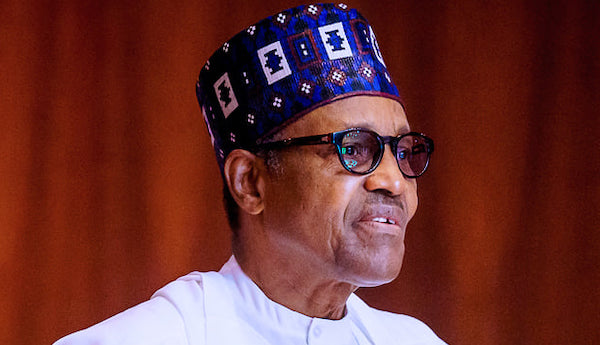Aso Rock Watch
ASO ROCK WATCH: As Buhari woos the world. Two other talking points

Wooing the world
On November 12, President Muhammadu Buhari admitted that Nigeria’s ethnic and cultural diversities, including her youthful population, constitute unusual challenges but charged the international community to explore positive advantages of the realities.
The President stated this while receiving letters of credence from the new ambassadors of Belgium, Mauritania, Austria and Norway at the Presidential Villa, Abuja.
Femi Adesina, Special Adviser on Media and Publicity to Buhari, quoted him as saying:
“As you may know, Nigeria is an ethnic and culturally diverse society with various opportunities, which we seek to creatively utilise for the benefit of our people. We are also a country with a huge population, which is predominantly youthful.
“These pose peculiar new challenges of their own. As Nigeria relates with your countries, it is our expectation that we should leverage on the advantages that can yield positive results in youth development in our country.”
The President’s submissions are, no doubt, on point. Given a multi-ethnic society, laden with many languages, it is unarguable that Nigeria’s cultural diversities present both immense challenges and unlimited opportunities, if well harnessed.
No where is this better expressed than the recent #EndSARS protests by Nigerian youths which held the opportunity for a radical change in governance style but got aborted as the Nigerian state encouraged an interplay of ethno-religious cards to break up the campaign.
The objective conditions, therefore, raise important questions:
1. How well has the Buhari-led administration managed Nigeria’s ethnic and cultural diversities since he assumed the presidency in 2015?
2. And, does the regime genuinely think that the global community is convinced that the administration has positively leveraged the opportunities inherent in the country’s diversity?
It is imperative for the President and, indeed, the ruling All Progressives Congress (APC) to acknowledge that the responsibility to tap into the benefits of cultural diversity rests squarely on the government.
Needless to add that how a country and its people are treated is a measure of the value the leadership places on its citizens.
Two other talking points
Waiting for COVID-19 vaccine
Vice-President Yemi Osinbajo on November 12 declared that one of Nigeria’s main priorities was getting the COVID-19 vaccine.
According to a statement by his Senior Special Assistant on Media and Publicity, Laolu Akande, Osinbajo spoke at the opening of the virtual edition of Paris Peace Forum which featured presentations by some Heads of State and government, alongside international organisations, on a collective response to the COVID-19 pandemic.
Osinbajo had said: “The priorities of Nigeria in the post COVID-19 era include improved health and the economy. First, we need to keep the virus under control. While our glands are still firmly in place, getting the COVID-19 vaccine is a matter of utmost concern.”
While the news of procuring COVID-19 vaccines may sound cheery, the concern of many is why the country failed woefully to institutionally drive its scientists to develop a remedy for the dreaded disease, instead of waiting for the rest of the world.
Read also: ASO ROCK WATCH: As Buhari dances around the truth. Two other talking points
Indeed, a greater worry is that the Vice-President’s show of concern may amount to nothing given Nigeria’s notorious history of placing little value on its citizens.
Suffice it that the country’s past experience suggests that Nigeria may be waiting for foreign aid or has hardly began preparations to procure the said vaccines.
While the country awaits the procurement of the Covid-19 vaccines, government may well pursue more aggressively citizens’ adherence to the various protocols or risk a second wave of the pandemic.
Insuring corps members
On November 10, President Buhari directed the National Youth Service Corps (NYSC) leadership to ensure the enrolment of corps members in the National Health Insurance Scheme (NHIS).
The Director-General of NYSC, Brigadier General Shuaibu Ibrahim, while briefing journalists, in Abuja, said the NYSC had begun talks with NHIS in compliance with the President’s directive.
“…The scheme has concluded arrangement with the NHIS for the enrolment of corps members into the NHIS in line with a presidential directive. We have also expended huge resources on critical health needs of corps members, including footing of medical bills,” he said.
The Buhari initiative is significant and must be placed properly in the context of the country’s determined drive to deepen national integration.
Its significance lies in the realization that the move represents the first concrete step to guarantee the health of corps members since former Head of State, General Yakubu Gowon (RTD), established the scheme in 1973.
No doubt, the health of the over 300, 000 corps members mobilised annually to serve the nation should be such that none of the conscripts is scared of service in any part of the nation on account of health concerns.
However, as laudable as the directive sounds, it is hoped that the enrolment will not be tainted with irregularities that would defeat its purpose of establishment.
And, more importantly, it is hoped that it would not be bogged down by the fabled Nigerian factor of unconscionable delays.
By John Chukwu…
Join the conversation
Support Ripples Nigeria, hold up solutions journalism
Balanced, fearless journalism driven by data comes at huge financial costs.
As a media platform, we hold leadership accountable and will not trade the right to press freedom and free speech for a piece of cake.
If you like what we do, and are ready to uphold solutions journalism, kindly donate to the Ripples Nigeria cause.
Your support would help to ensure that citizens and institutions continue to have free access to credible and reliable information for societal development.

























